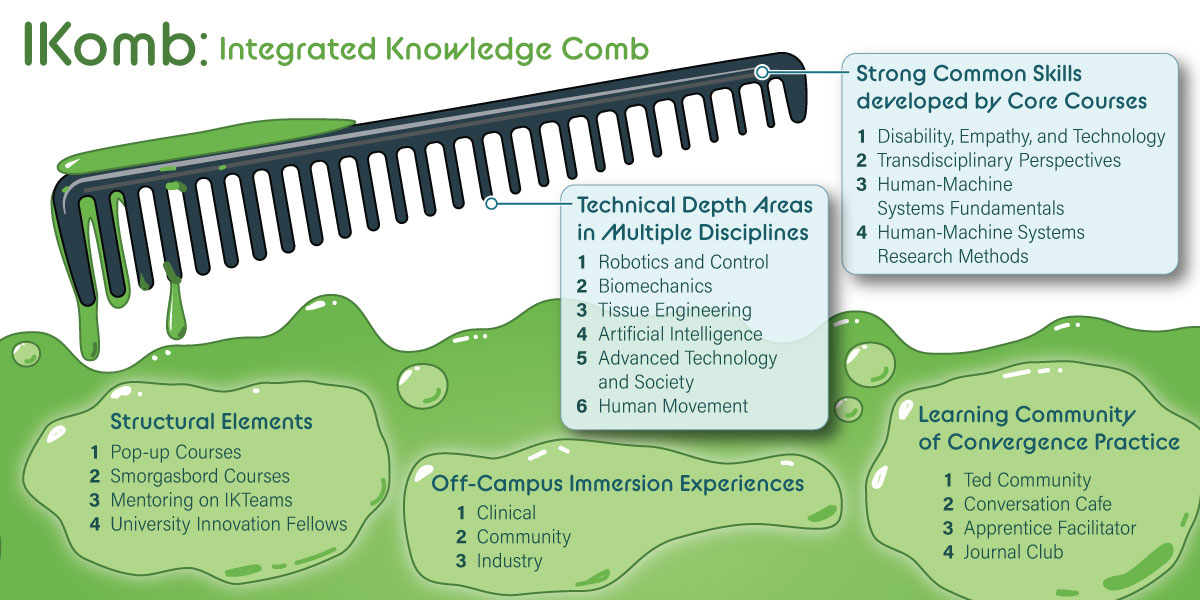Program Overview
Our long-term vision is that engineers, therapists, psychologists, and urban experts collaborate on physical rehabilitation teams that create technologies empowering people with disabilities. The objective of this traineeship program in human-machine systems for physical rehabilitation is to equip students with skills to work on transdisciplinary research teams that successfully partner with people with disabilities.
We will train you as a researcher to think holistically about challenges facing people with disabilities, turning away from a focus on individual disciplines. The “IKomb” traineeship model is based on the “comb model” of integrating diverse approaches to problem solving and the Integrated Knowledge (IK) Translation principles. Four core courses form the spine of cross-disciplinary skills. Flexible course groupings make
up the IKomb teeth giving students depth in multiple disciplines. Students are dipped in the “goo” of immersive training experiences in the clinic, community, and industry. “Goo” immersion forces students to practice the core “spine” skills as they experience the intertwined -- rather than isolated -- issues of disability in real-life settings. The goo hardens the spine and connects the teeth more securely. Without
the goo, disciplinary teeth fall away from the spine, and students are unable to think about problems outside of their primary disciplines.
Integrated Knowledge Translation Guiding Principles (IKT Guiding Principles)
Central to the training program is learning to live out these principles for partnering with the disability community to research and develop technologies relevant to the community. The IKT principles were developed jointing by members of the research and disability communities. The eight principles are:
- Partners develop and maintain relationships based on trust, respect, dignity, and transparency.
- Partners share in decision-making.
- Partners foster open, honest, and responsive communication.
- Partners recognize, value, and share their diverse expertise and knowledge.
- Partners are flexible and receptive in tailoring the research approach to match the aims and context of the project.
- Partners can meaningfully benefit by participating in the partnership.
- Partners address ethical considerations.
- Partners respect the practical considerations and financial constraints of all partners.

